- Home
- Iris Murdoch
The Good Apprentice Page 16
The Good Apprentice Read online
Page 16
It suited him to be told what to do, to be so much employed that he could exist unthinkingly like a slave, like a working animal. At moments when he was tired, when his strained body resented an exertion to which he was unused, he experienced a welcome sense of degradation, as if he were about to escape from his burden of consciousness. He would become a beast, a four-legged thing that faced the earth and humbly offered its bared back to be ridden upon, he would shrink into a rat, a mouse, a beetle, become a dried-up husk like the little tree fruits he had crunched underfoot on the hill, he would crumble to dust and thus escape the torture of being. Yet would not every grain of dust be cursed with a memory? He would become an atom, an electron, a proton — but these were thoughts which led back again into the quivering pain of the reflecting self. Sitting in the Interfectory during his enforced ‘leisure’ he ached with misery as he covertly watched the women who, when they caught his guilty look, smiled at him encouragingly but did not speak. Silence was not exactly enjoined but was customary. After the urgent purposeful ‘powerhouse’ activity of the day, leisure seemed deliberately purposeless. Embroidery frames were in evidence, but not much embroidery was done. Mother May often passed the time mending clothes, but leaving off at intervals to relax, her body becoming limp, her beautiful grey eyes vacant, her lips faintly smiling. Edward, stiff in his chair, wished he could emulate this absence. Ilona drew dreamily with pastels on sketch pads of various sizes. Bettina was studying a volume about African crafts. The bookshelves contained, together with a variety of works upon architecture and design, a number of English nineteenth-century novels, all dusty and undisturbed. What indeed could the women have made of these tales of violence? It would have been like watching savages pretend to read. Edward himself beguiled an appalled boredom by trying to write poetry, but could not concentrate, and concealed his enforced idleness by doodling on the paper or writing nonsense.
After the first morning Edward had not again been serenaded under his window, though he occasionally heard, as he worked in the garden, a brief distant sound of a recorder rather unskilfully played, he imagined by Ilona. There was an old gramophone and some classical records in the Interfec, but Edward had not yet ventured to ask for music. He was also tacitly excluded from another rite, the early ‘exercises’ which occurred before breakfast on the grass beyond the stables, and which, as he covertly observed them, looked to him more like dancing. ’It’s Chinese,‘ Ilona told him, ’sort of swaying movements, rather slow and rhythmical.’ ’It’s the natural rhythm of the body,‘ said Bettina, ’not like the violent jolting most people call exercise.‘ ’We follow Jesse’s rule,‘ said Mother May, ’he is a mystic. Eastern wisdom teaches the unity of body and spirit, how the outer is the inner, the inner the outer.‘ This information was not conveyed solemnly but with a kind of friendly levity, and when Edward said he would like to join in he was laughed at. ’It takes ages to get the hang,‘ said Ilona. Meanwhile there had been no recurrence of the festive wine-drinking of his arrival night, but Edward, tired and hungry at meal-times, did not miss the alcohol. He had also become used to the very simple monotonous vegetarian fare. The evening meal was nevertheless, even on ordinary days, something of a formality, with the women in their pretty dresses and Edward in a long oatmeal smock-shirt belonging to Jesse which Mother May had offered him as ’evening dress’ and in which he felt uneasy, although he now wore Jesse’s boots without anxiety. They fitted him well. He had established, or been given, a singular right, that of ‘taking a walk’ during the afternoon rest time, even prolonging it a little. He treasured this aloneness. He had once tried to return to the dromos or, as he thought of it, the ‘sacred grove’. He wondered if there would be fresh offerings of flowers. Who came there? But the river had swollen a little, the stone bridge was scarcely visible and traverse across the wooden ‘bridge’ looked too hazardous. He had, out of a sort of shyness or reverential unease, not yet mentioned his discovery of this place. He wondered how it related to Seegard. He had also not mentioned the night noises. Nor had he or the women said anything about Edward’s ‘mishap’ which they had ‘read about’ and which had evidently prompted their invitation. In spite of their continued almost effusive friendliness and evidences of concern and affection, he still felt a little nervous of the three of them, a nervousness quite distinct from his fear of Jesse, and indeed different in quality in relation to each. With Ilona it was easiest, and yet, just because he was closest to the ‘young one’, he felt anxious, as if some power coming from him might harm or taint her. He was conscious of a diffident withdrawal on both sides. Bettina was sometimes, during work, brusque with him, critical, and yet also there was some vibration of a strong emotion, perhaps simply his sense of her intense self-absorbed inwardness. Mother May, being older, had the clearer role, of a benevolent motherly figure. She expressed her affection for Edward in a more direct way, teasing him, moving round him, making a space where he was with her. She had not yet kissed him however, and neither of course had the other two. Kisses, so cheap in Edward’s student world, were highly priced at Seegard. Mother May’s fine transparent calm face, revealing by daylight some tiny line-thin wrinkles, was amazingly youthful yet expressed a confident reserved authority. Sometimes when all three women plaited their hair in the evening, wearing ribbons into the plaits, and letting the long heavy ropes hang down behind, they looked like three young mediaeval princesses. Three cloistered princesses in a castle waiting for a knight, Edward thought with a shudder. He could feel Mother May watching him, as if waiting. Waiting perhaps for some assessment which she would make jointly with Jesse. They would discuss Edward, weigh him, sum him up. The queen was waiting for the king. What would she be like, what would she become, when he came back?
Edward gained a certain satisfaction from thinking how completely he had run away, and how nobody knew. He inhaled his elsewhereness. He tried to relax and let himself be absorbed into the extraordinary Seegard world of what he thought of as ‘Bohemian puritanism’. Yet at the same time the old obsessed blackness remained unchanged. When he went walking alone, on duller walks now since he could not cross the flooded river, going along the track toward the road, along the road or into flat fields nearby, although he consciously tried hard to look at the trees, the plants, the flowers, the low white clouds moving in the huge sky, he saw as vividly as ever Mark’s face, his huge-eyed royal head, and rehearsed the details of that terrible evening. His feeling attached itself to a small picture by Jesse which he had discovered in the empty bedroom next to his own, representing a number of people sitting awkwardly together in a room, obviously in silence, either waiting for or having just heard of a catastrophe: misery crystallised as pure fear. All this, he thought, as he looked at the countryside and looked back to see the cathedral-like form of Seegard still upon the horizon, is a phantasm, a dream, a veil, something superficially laid over the truth; and only dealing with the truth will save me from death. Or transform death into something else. What else? Life I suppose. But do I want life, any life, do I want to be saved? And is there not only one true death, the ordinary one, being slaughtered and done with, where any promised metamorphosis is a mere fiction? To be dead, like Mark is dead. How weak, compared with this, was the idea, constantly, subtly, urged upon him by the three women, that he had come to a house of healing. All this is just magic, he thought to himself, clouds of pretty colours, a delusion, a wrong path. But of course — everything, life and death and truth, must now depend on Jesse.
‘Quick, quick, come and see, Bettina is teasing a spider!’
Edward stopped chopping basil and dandelion leaves in the kitchen and hurried into the lower corridor of West Selden whence came Ilona’s ecstatic cry. He followed her wave into one of the downstairs rooms, still called the Harness Room from the days when, so Ilona told him, the girls had had ponies, but now mainly full of broken furniture. (He had not yet ventured into East Selden, whither he had not been invited.)
Beside a dusty window ledge, Bettina was con
fronting a large black spider, a very stout spider with a thick body and hunched up legs and prominent stalky eyes which, the impression was irresistible, were glaring at his tormentor. A grey hairy curtain in the corner of the ledge, with a deep hole in the centre of it, was apparently the spider’s home, which Bettina was preventing him from returning to by means of a feather. The spider tried various devices, pretending to retreat then rushing forward, shamming dead, suddenly shooting up the window pane. All was of no avail. Bettina, smiling, flicked him back, simply barred his way, or deftly picked him up on the feather and deposited him at the other end of the ledge, whence he returned at an angry run.
‘Oh, don’t hurt him!’ said Ilona.
‘Of course I won’t hurt him.’ At that moment a too vigorous movement of the feather swept the spider off the ledge where he fell with an audible plop out of sight among some upturned chair legs. Bettina turned away.
‘Oh, will he be all right?’
‘Of course he will, silly!’
‘Do you think he’ll find his way home?’
‘Yes, or else he’ll make another home, they work fast, unlike some.’
Ilona suddenly cried out almost in tears, ‘Oh the poor beastie!’
‘Stop it!’ said Bettina sharply.
Edward, coming to Ilona’s help, said quickly, ‘I’ve never seen a house so full of spiders.’
‘Spiders are sacred in this house,’ said Bettina.
‘All spiders belong to Jesse,’ said Ilona, recovering.
‘If Edward objects to cobwebs we’ll set him to catch all the spiders in the house,’ said Bettina, ‘and if he hurts a single one he’ll be punished!’
‘Oh I love spiders, and cobwebs,’ said Edward hastily.
‘That’s just as well,’ said Bettina.
Edward followed the girls out of the room and on toward the kitchen. The scene with the spider had disturbed him.
‘What a heavenly smell of basil!’ said Ilona, as they surveyed the scene of Edward’s recent labours.
‘The kitchen always smells of basil,’ said Bettina, ‘we grow it all the year round, in the greenhouses and in the house, there’s always a pot or two here.’
‘We keep all sorts of herbs,’ said Ilona, pointing to rows of dried bouquets hanging from beams. ‘Mother May knows all about them, she makes up all sorts of medicines, if you need a medicine just let her know.’
‘Edward doesn’t need any medicines,’ said Bettina.
‘Did you sleep well?’ Ilona asked.
‘Yes,’ he said, ‘but — ’
‘But what?’
‘I heard an extraordinary noise in the night.’
‘Like what?’
Edward hesitated. ‘I heard a sort of wailing — or howling — I couldn’t make out where it came from.’ He instinctively chose the noise which might be easiest to explain away.
‘Sedge warblers,’ said Ilona promptly.
‘Sedge warblers?’
‘Yes, birds, they sing at night, not a bit like nightingales, they can make quite a harsh sound — ’
‘I don’t think — ’
‘Or owls. Bettina can call owls, can’t you, Bet? And she can make high notes only animals can hear.’
‘You haven’t lived in the country,’ said Bettina, ‘the countryside at night is full of strange sounds. It could have been mating foxes, but more probably it was the wild donkeys.’
‘I’ve never heard of wild donkeys.’
‘Well, you’re hearing of them now. There are some in the wood. They make the most amazing sounds, especially in spring.’
‘I’d like to see them — ’
‘You won’t, they’re as hard to see as badgers, and they can be dangerous, quite fierce.’
‘So you have super mosquitoes and super donkeys!’
‘I told him about the mosquitoes,’ said Ilona, ‘they’re really dangerous, they’re a bigger resistant breed, and they can give you awful malaria.’
‘You should keep out of the fen,’ said Bettina, ‘and out of the wood too, at this time of year. Look, why don’t you two knock off? I must do a job on that chair. You take Edward for a walk, Ilona, go down the track and along the footpath, there’s time before lunch. Go along, go along, Ilona is an idle girl!’
‘Wait, Edward, I must find my coatie!’
They set off in boots and coats with the wind behind them. This was the first time that Ilona and Edward had been for a walk together, and they went rather self-consciously down the avenue between the lines of big gawky black-and-white flints.
Edward said, ‘I thought at first that these were the ugliest stones I’d ever seen, but how I think they’re beautiful.’
‘Yes. Jesse loves them. They inspire his sculptures.’
‘I didn’t know he was a sculptor.’ As Ilona said nothing to this Edward went on, ‘Do they come from the sea shore?’
‘No, they just turn up in the field like — like treasure, like magic things. Just separate from each other and alone. The flints of the sea shore are different, smaller and smoother and more brown.’
‘Is there a beach?’
‘Well, very stony. The railway used to run along the coast, but that was long ago. We’re quite cut off now, it’s nice.’
‘I wish I could get to the sea. Could one reach it that way?’ He waved to the right over a field covered with some immature greenish crop.
‘No, there’s nothing that way, and the farmer won’t let anyone through. I’m sorry it all looks so drab. There’s rape in that field — ’
‘What?’
‘Rape, a crop, it makes oil. It’ll be a beautiful brilliant yellow in May, you’ll see.’
Will I? Edward wondered. ‘So you don’t own this land?’ ‘No, only some fen and woodland and the water meadows. We’re not rich, you know, we have to work and sell things. I make jewellery — ’
‘Will you show me? And you weave — ’
‘Yes, and Mother May makes rugs, and she paints Christmas cards and boxes and does lovely embroidery — ’
‘And what does Bettina do?’
‘She’s not so artistic, well, she was an art student, she’s a craft person really, she can make any sort of furniture, and she used to make pots — a friend takes our stuff to London to sell.’
‘And you go to London?’
‘Oh, well, I have been.’
Not often, thought Edward. Does he imprison them?
‘I haven’t travelled,’ said Ilona. ‘Jesse and Mother May have lived in Paris, and Bettina has been there. I haven’t been anywhere. I wanted to be a dancer once — ’
‘How odd, so did I! I’ll take you to Paris — one day — You’re all so clever. But Jesse’s pictures, I mean, don’t you sell them?’
‘We don’t want to sell any at present. You’ve only seen his early pictures, he’s been through lots of phases, there was the black and yellow abstract period, and then his expressionist heroic phase, we call it his royal phase, when he did lots of big figures of kings and animals and people fighting, and then his late-Titian phase when he went back to some of his early ideas only everything looked quite different, darker and sort of twilit but absolutely full of light, and then he had a tantric phase with marvellous colours when he was always painting the beginning or the end of the world, some of his work is very erotic, you’ll see — ’
‘I hope you’ll show me. When is he coming back?’
‘Very soon, I believe.’
‘What’s that noise?’
‘An electric saw. It’s the tree men, they’re cutting down trees on the other side, there’s a lot of forestry inland. We don’t like them very much. They’re poisoning all the fretty chervil along the road with weed killer, and they destroyed some orchids. Still, they help us sometimes.’
They walked in silence. The sound of the saw was eerie in the empty scene. Edward said, ‘You know, I’ve heard other noises at night.’
‘Oh — ’
‘Yes. I heard a terrible lo
ud sound like a lot of breaking glass. And a sound like — like children running inside the house. I somehow knew they were children.’
Ilona had put on a coat over her plain day dress and turned up the collar, over which a long tress of her reddish hair trailed down her back as far as her waist. The rest of her hair was bunched into a little blue woollen cap. In the coat she looked childish and small, immature, with her cheeks damp and reddened with cold, she could have been a boy of fourteen. She patted her cap, pulling it down over her ears, then replied.
‘The breaking glass noise was the poltergeist, that’s one of his tricks. It can be very loud. He hasn’t done it lately. I thought he’d gone away.’
‘You sound as if you know him personally! Did you hear anything?’
‘No.’
‘And the other, the children?’
‘That,’ said Ilona, ‘is something from the past.’
‘How do you mean?’
‘You’re sleeping in the old part of Selden. Sometimes things from the past come back, quite isolated things, not ghosts. I don’t believe in ghosts or spirits of dead people. It’s just, like the poltergeist, something sort of mechanical, something natural, which we don’t know much about. Perhaps we pick up waves from other minds, past minds, something someone else heard or saw — ’
‘I admire the way you take it all for granted. Are you psychic, do you see and hear things?’
‘I’ve heard the poltergeist. I’ve never seen anything. But Jesse has. He has a great sense of the past. That chest thing there is our pillar box, Bettina keeps the key and the postman has one. If you want to send a letter out give it to her and she’ll leave it for him.’

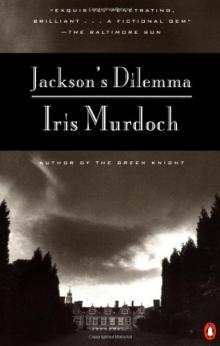 Jackson's Dilemma
Jackson's Dilemma The Flight From the Enchanter
The Flight From the Enchanter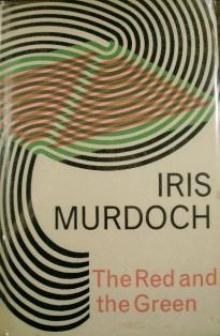 The Red and the Green (Vintage Classics)
The Red and the Green (Vintage Classics)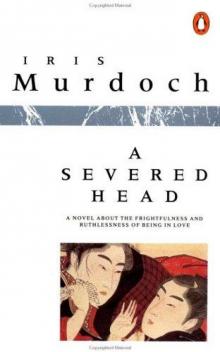 A Severed Head
A Severed Head The Black Prince
The Black Prince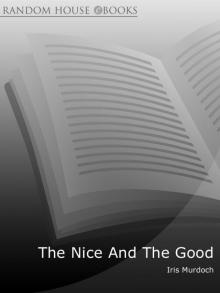 The Nice and the Good
The Nice and the Good The Unicorn
The Unicorn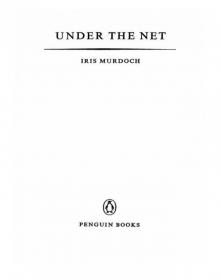 Under the Net
Under the Net The Italian Girl
The Italian Girl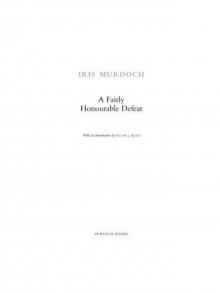 A Fairly Honourable Defeat
A Fairly Honourable Defeat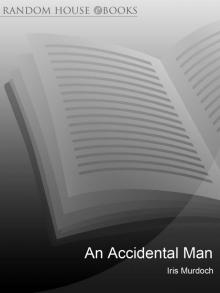 An Accidental Man
An Accidental Man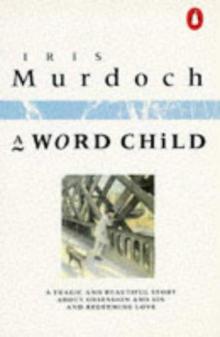 A Word Child
A Word Child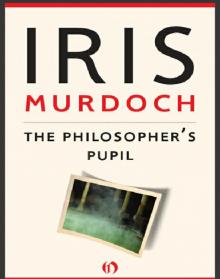 The Philosopher's Pupil
The Philosopher's Pupil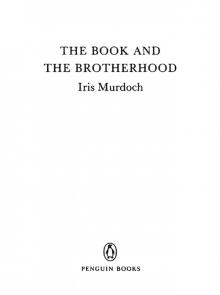 The Book and the Brotherhood
The Book and the Brotherhood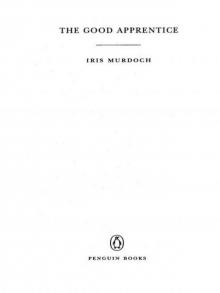 The Good Apprentice
The Good Apprentice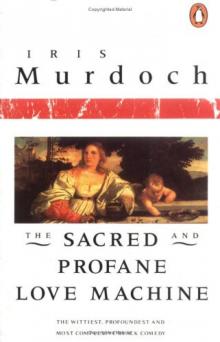 The Sacred and Profane Love Machine
The Sacred and Profane Love Machine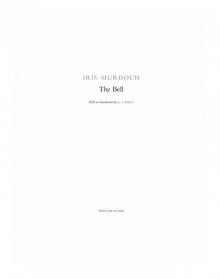 The Bell
The Bell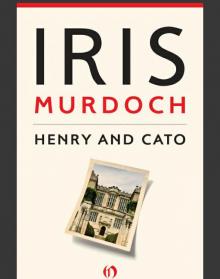 Henry and Cato
Henry and Cato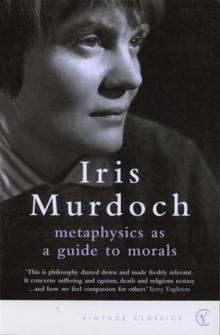 Metaphysics as a Guide to Morals
Metaphysics as a Guide to Morals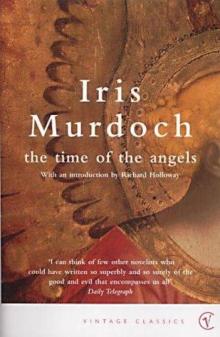 The Time of the Angels
The Time of the Angels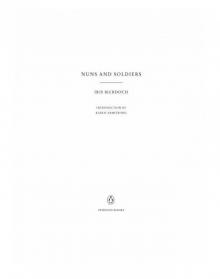 Nuns and Soldiers
Nuns and Soldiers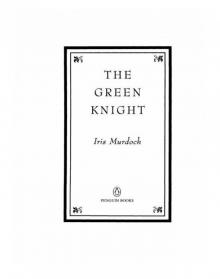 The Green Knight
The Green Knight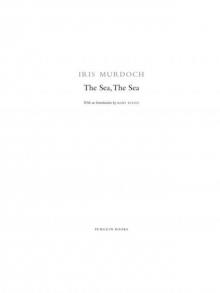 The Sea, the Sea
The Sea, the Sea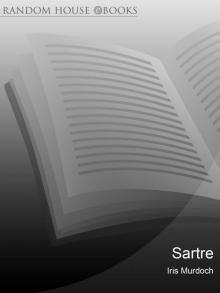 Sartre: Romantic Rationalist
Sartre: Romantic Rationalist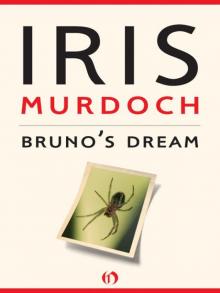 Bruno's Dream
Bruno's Dream An Unofficial rose
An Unofficial rose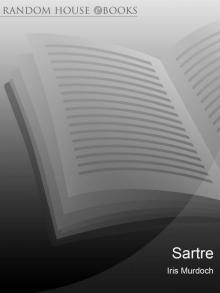 Sartre
Sartre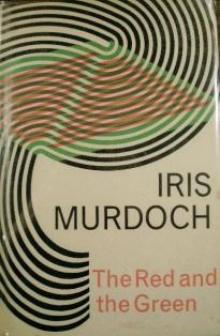 The Red and The Green
The Red and The Green